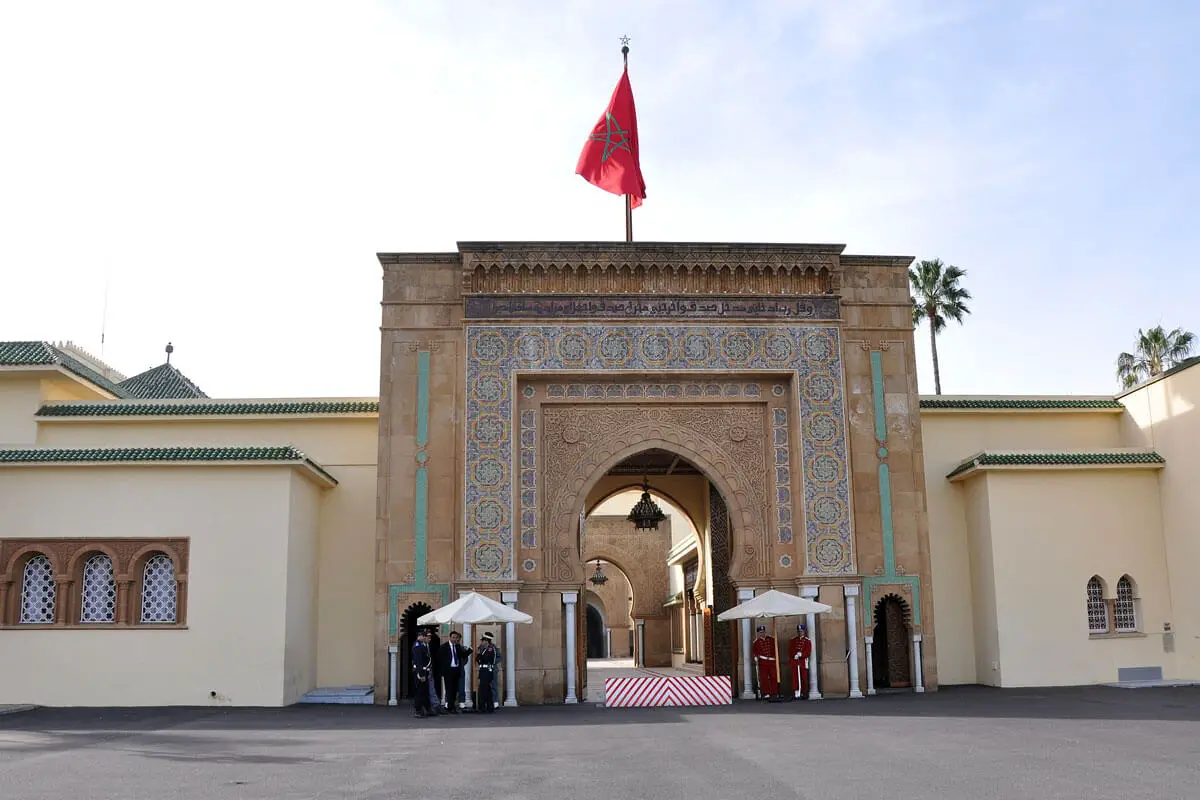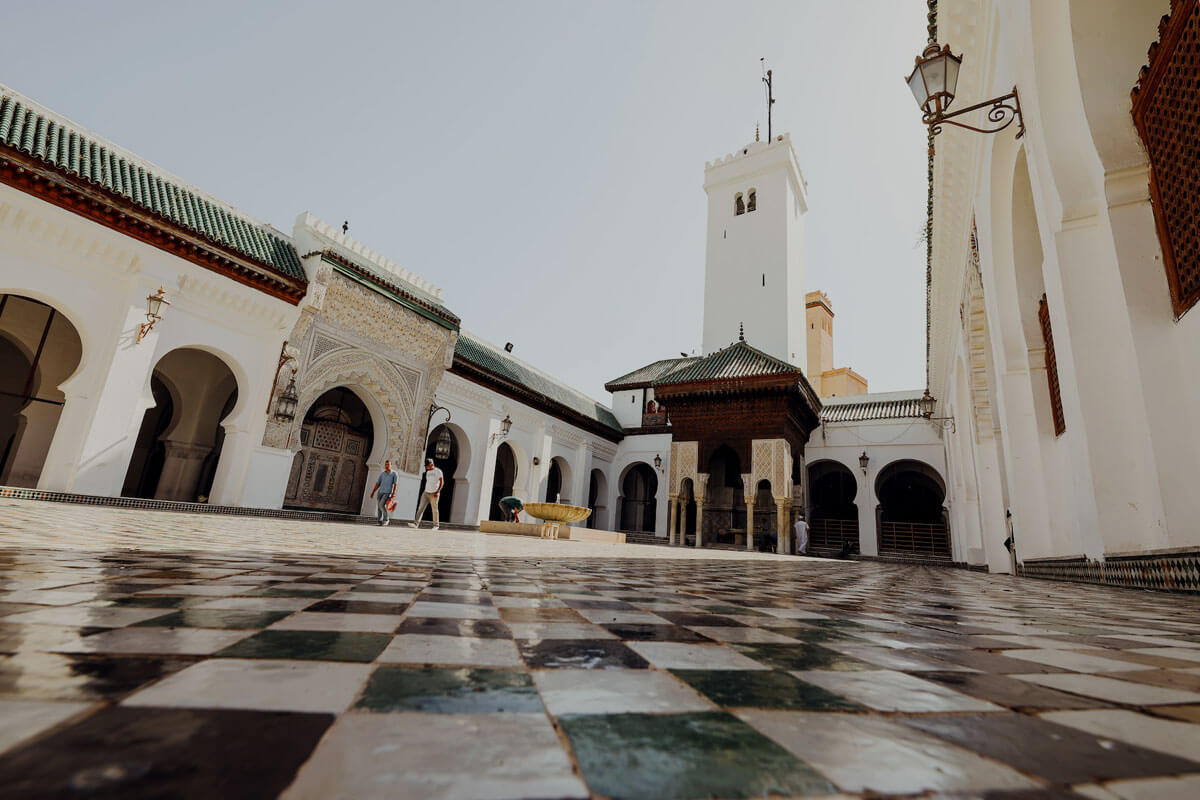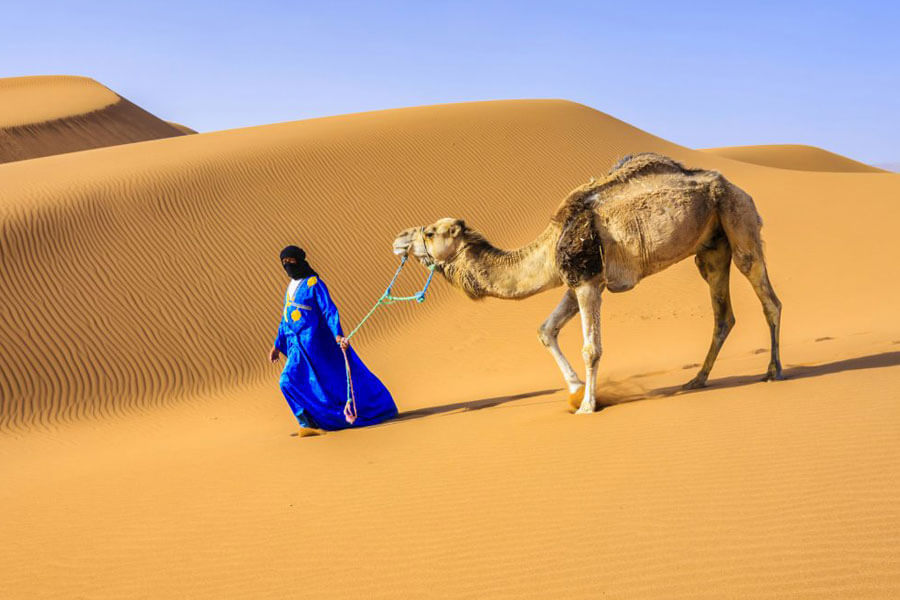A visit to Morocco is like stepping into a perfect blend of culture, adventure and breathtaking vistas. In Morocco, you will find beautiful beaches, old medinas packed with history and culture, rugged landscapes, delicious food and warm hospitable people.
With so much to see and do, planning your visit at the most ideal time of the year will ensure that your overall experience is perfect.
In this article, we'll take a look at the best time to visit Morocco and explore that further so that whatever your style and preferences of travel, you will understand what time works for you.

Understanding Morocco's Climate
Morocco's climate is greatly influenced by its diverse landscapes. Along the coast, the climate is influenced by both the Atlantic Ocean and the Mediterranean Sea. The Atlas Mountains stand tall from the surrounding while the Sahara Desert sits untamed and vast.
This mix of geography creates different climates across the country.
General Climate Table For Morocco
| MONTH | TEMP (°C) | TEMP (°F) | RAINFALL (MM) |
|---|---|---|---|
| January | 10 - 18 | 50 - 64 | 70 |
| February | 10 - 19 | 50 - 66 | 45 |
| March | 12 - 20 | 54 - 68 | 50 |
| April | 13 - 22 | 55 - 72 | 40 |
| May | 15 - 24 | 59 - 75 | 30 |
| June | 18 - 27 | 64 - 81 | 10 |
| July | 21 - 30 | 70 - 86 | 1 |
| August | 21 - 30 | 70 - 86 | 1 |
| September | 19 - 28 | 66 - 82 | 10 |
| October | 16 - 25 | 61 - 77 | 35 |
| November | 13 - 21 | 55 - 70 | 80 |
| December | 11 - 18 | 52 - 64 | 80 |
As earlier mentioned, keep in mind that the climate is different in various parts of the country.
Best Time To Visit Morocco
The best time to explore Morocco is during spring (March - May) and fall (September - November). These seasons offer delightful weather, ideal for partaking in cultural festivities and outdoor adventures.
It's wise to steer clear of the scorching summer heat and the chilly winter months to ensure a more comfortable and rewarding travel experience.
Let's take a deeper look at Morocco's travel seasons so that you can get a deeper insight into what time would work for your trip.

1. Peak Tourist Seasons
Spring (March To May)
With temperatures ranging between 12 and 20 degrees Celcius ( 54°F to 68°F ), this is the ideal period for visiting Morocco. Nature is alive and vibrant.
This is Morocco at its finest, a place where the Fez Festival of World Sacred Music transforms into a beautiful blend of cultures and traditions, creating a harmonious symphony of life.
Fall (September To November)
Fall/Autumn is another favourable time to visit Morocco. The temperatures range between 19°C to 28°C (66°F to 82°F).
September to November is a perfect time for exploration when the temperatures are quite pleasant, and the crowds are slightly smaller in comparison to the spring (March to May).
2. Off-Peak Seasons
Summer (June To August)
Between June and August, Morocco experiences a hot summer - especially in the areas in and close to the Sahara Desert. While the desert basks in temperatures around 30°C (86°F), the coast offers refuge at a pleasant 21°C ( 70°F ).
While summer is hot in Morocco, this is far from the hottest places in Africa and a lot of activities can still be enjoyed as part of your trip.
Winter (December To February)
With the snow-capped Atlas mountains and uncrowded beaches, this is the quietest time to visit Morocco. Generally, the temperatures range between 11°C and 18°C (52°F to 64°F).
For people who prefer the exclusive feel of a holiday with no tourist crowds, December to February is a great time to visit Morocco. This might however not be ideal if you prefer warmer conditions.
Special Considerations
Ramadan
During Ramadan, the spiritual pulse of Morocco quickens. Locals observe fasting from dawn to dusk, and dining options are limited during daylight hours.
Visitors who come during Ramadan should be aware of this and be better prepared for a situation where most places will not have food during the day. Additionally, it is regarded as respectful to not eat in public when other people are still going on with their fast.
In case food is a big part of your travel and cultural experience, visiting in Ramadan might seem limiting - so keep that in mind as well.
Related article: Best foods to try in Morocco

Sahara Desert
The Sahara Desert is Morocco's hottest landscape and can best be visited during spring and autumn. This is when the temperatures are more bearable at an average of 22°C (72°F) - making it possible for you to explore your desert dreams.
High Atlas Mountains
If the mountains call to your spirit, embrace spring and fall. With temperatures ranging from 12°C to 20°C ( 54°F to 68°F ), these seasons showcase Morocco's heights in their full glory.
Budget Considerations
For the budget-conscious traveller, the tourist high season comes with increased costs and very little wiggle room while looking for a good bargain. However, the off-peak periods tend to have deals and discounts that can save you some money - making your trip cheaper, or a bit longer.
This is a general situation in all countries and not specific to Morocco. The great thing about Morocco is that the climate is not dramatically different in the various seasons, and visiting in the off-peak season doesn't mean you will miss out on the experiences.
Whatever the season, the experiences are really special and with proper planning, it is never impossible to get a good deal - especially if you are booking ahead of time.
Personal Preferences
Weather Tolerance
Think about your inclination towards different climates. Whether you seek the embrace of the sun or a cooler breeze, your choice will greatly determine how you want to enjoy your time in Morocco.
Take a second (or third) look at the climate chart we provided to assess your compatibility with the various seasons of Morocco. If you can Imagine that it will be okay, it most likely will be.
Crowds
Some people like the crowds while others find big crowds to be quite exhausting. Morocco's charm is timeless and can be enjoyed with or without crowds.
Choose between the vibrant peak seasons and the serene off-peak times, each chapter revealing a unique perspective of the same Morocco.
Final Thoughts
As you think about what your trip to Morocco would feel like and how it would change your worldview, we are here to help you better understand and schedule your perfect adventure.
Whether it is culture, nature, adventure or your combination of all these and more, Morocco is a great destination worth your consideration. And now, you know all about the climate - and how it fits in with your preferred activities.
